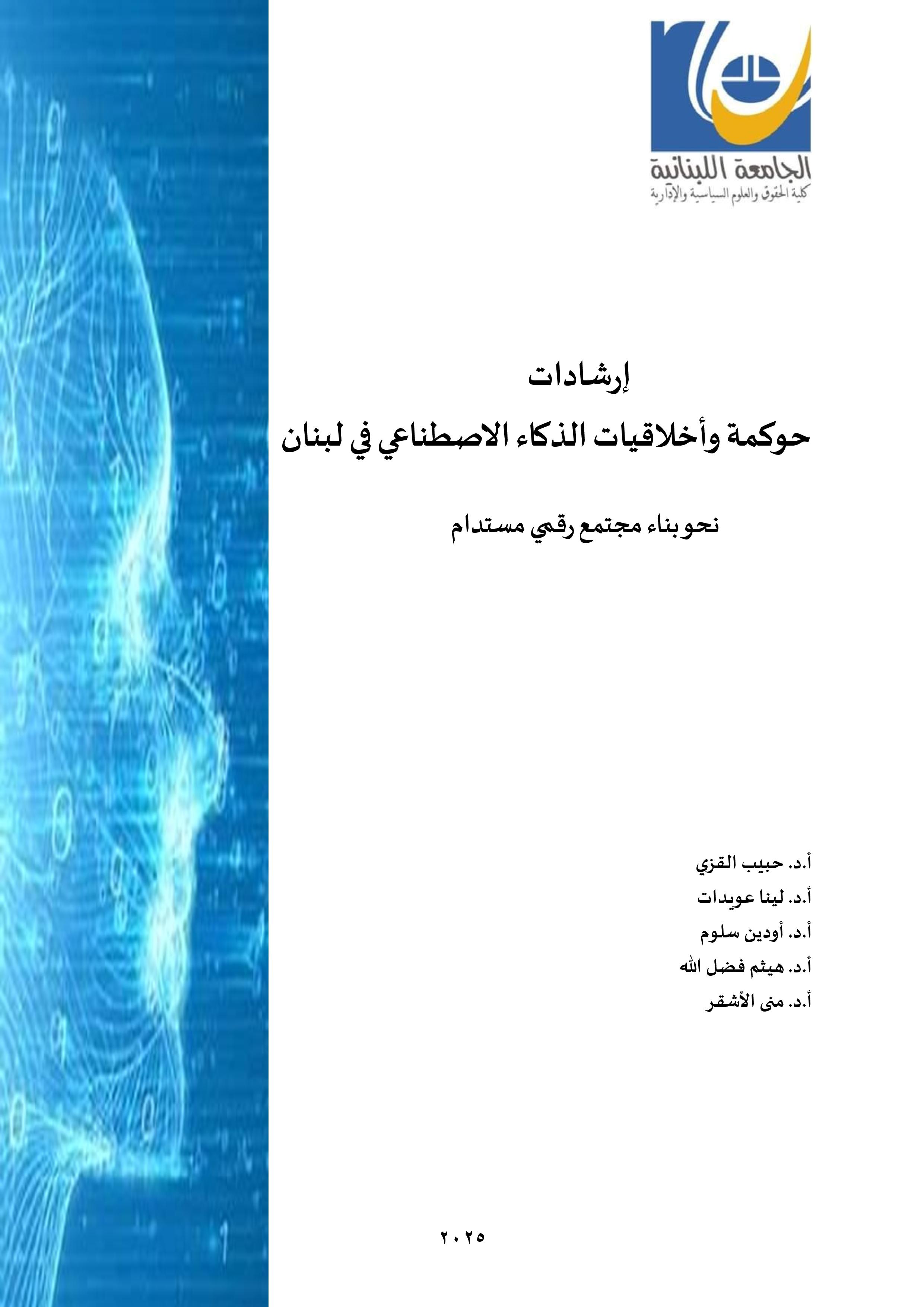In a first-of-its-kind initiative in Lebanon, the Faculty of Law, Political & Administrative Sciences published guidelines on the governance and ethics of artificial intelligence in Lebanon.
These guidelines aim to establish unified ethical principles and a regulatory framework for trusted AI, and propose best practices for the responsible and safe use of this technology to protect users, maintain societal norms and ensure compliance with applicable laws.
The guidelines provide a practical reference for public and private sector entities wishing to design, develop and deploy AI technologies for commercial, non-military or dual-use applications.
The guidelines include fundamental guiding principles for the use of AI (justice and fairness, privacy and security, humanity, social and environmental benefits, reliability and safety, transparency and interpretability, accountability and responsibility) and an innovative national regulatory framework, as well as a series of recommendations at local and international levels.
The guidelines also provide for a monitoring and control mechanism based on the creation of a National Authority for Artificial Intelligence, which aims to monitor and investigate violations, grant licenses for the use of AI models related to critical infrastructure systems, provide suggestions and advice to the entities concerned, and activate international cooperation in this field.
The initiative by the Faculty of Law, Political & Administrative Sciences is a prerequisite for placing Lebanon on the map of technologically advanced countries. The guidelines were developed by a committee of experts headed by the Dean of the Faculty, Dr. Habib Kazzi, and including Professors Lina Oueidat, Odine Salloum, Mona Achkar and Haitham Fadlallah.
The guidelines can be found in the attached file.
